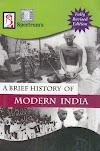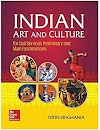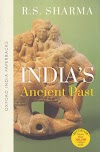Electoral laws, Electoral reforms and Political Parties
Electoral laws
- RPA 1950
- RPA 1951
- RPA Amendment Act 1988
- RPA Amendment Act 1990
- RPA Amendment Act 1996
- RPA Amendment Act 2013
Representation of People Act 1950
- We adopted the first past the post electoral system for Lok Sabha and State assembly election.
- The act provides for a single member territorial constituency for holding elections.
- The law provides for administrative machinery for conducting election to both the houses of the parliament and state legislature.
- The act defines general election (election after the dissolution), by-poll, etc.
Representation of People Act 1951
- It is a comprehensive law regulating elections to both the houses of the parliament and state legislature.
- The law provides for detailed qualification as well as disqualification of voters as well as lays down grounds for disqualification of contestants as well as qualifications of contestants.
- The act regulates the conduct of election by providing for the appointment of returning officer, filling of nomination paper, holding of polls, counting votes, declaration of result, etc.
Electoral reforms
Representation of People Amendment Act 1988 -
- It introduced electronic voting machine (EVM).
- It mandate the compulsory registration of political parties.
- The act provided that a person convicted for offence against women, prevention detention law, national security act, conservation of foreign exchange act shall be disqualified from contesting election.
- The act provides for stronger punishment for electoral malpractices.
Dinesh Goswami Committee on Electoral reform 1990
- The committee recommended introduction of State funding of election but not in cash, only in kinds, so that unaccounted black money can't be put to use by various political parties particularly big parties and thus can't have an advantage.
- The reserved seats in the favour of SCs/STs shall be periodically rotated in the case of Lok Sabha and State assembly constituencies (Current situation - Reservation of seats is rigid and did not rotate).
- No candidate shall be allowed to contest for more than 2 constituencies simultaneously.
- Election commission should be empowered to nominate election observer with the power to direct the Returning officer to stop the conduct of election, counting of votes or even declaration of result in case there were some contingency (malpractice).
- President shall also consult the chairman of Rajya Sabha, Speaker of Lok Sabha and the leader of Opposition in Lok Sabha while appointing Chief Election Commissioner.
Representation of People Amendment Act 1996 (to implement the recommendations of Dinesh Goswami Committee)
- Election campaign period got reduced from 3 weeks to 2 weeks.
- The nomination paper of the candidate not belonging to a recognised party has to be subscribed by a minimum 10 voters in the constituency.
- On death of a candidate nominated by a recognised political party before the start of the election, the polling is adjourned and the party concerned is given 7 days time to nominate a fresh candidate but in case of death of other candidate (independent/not recognised political party) polling shall go as per the schedule.
- By-election in the constituency shall be held within the period of 6 months from the date of occurrence of vacancy in the constituency due to the death , resignation or disqualification of the candidate provided that the remaining term of the member in question is not less than 1 year.
- No person is allowed to contest from more than 2 constituencies of the same class simultaneously.
- Election commission got the power to nominate election observer.
- A person convicted and sentenced under Prevention of insult of national honours act 1971 shall be disqualified from being a legislator or contesting election for a period of 6 years from the date of such conviction.
Electoral reforms which are required but not addressed so far by the parliament
- Section 77 of RPA 1951 should be amended suitably to plug in the loop holes which allows unlimited and unaccounted expenditure by the party and friends of the candidate during the election.
- Make the appointment process of Chief Election Commissioner and other Election Commissioners more consultative and transparent by involving presiding officers of Lok Sabha and Rajya Sabha as well as the leader of the opposition in Lok Sabha in the consultation process to appoint them.
- The removal process of Election commissioner shall be made similar to Chief Election Commissioner so that Election commissioners can also work freely and independently.
- Rotation of the reserved constituency must be made mandatory by law.
- Give legal status to MCC.
- ECI can be given power of the contempt as given to the Supreme Court and High Court.
- There must be a legal provision under which every party must be bound to distribute various important positions in the party after holding a free and transparent organisational election, so that democracy prevails within the party. This way democreatic values will be preserved by the party inside the party as well as outside the party and thus strengthening the overall democracy and fighting the syndrome called as Dynasty Politics.
Criminalisation of the Politics - It is a process of introduction of criminal elements in electoral process and other democratic institutions. It happens because -
- Many people do not vote responsibly rather they vote for narrow consideration of religion, race, caste, etc. and thus bring wrong elements to power.
- Criminal justice system in our country is having inbuilt delays which allows a person to continue in politics for long before he is proved guilty.
- The rate of conviction is too low and lop sided (biased).
- First part the post electoral system allows criminal and unpopular candidate to come to power as they can win even by getting a small margin over other candidate which they can get by the use of muscle and money power.
- Poverty and illiteracy also force people to pick up wrong candidate.
- Paid media shows criminal elements in good light, helping them to win.
Measures taken by the judiciary to fight criminalisation of politics (an example of Judicial Activism; i.e., work of legislature done by the judiciary)
- Association of Democratic reforms vs Union of India 2002
Supreme Court held that the citizens enjoy the Right to Information as a Fundamental Right, thus they have full right to know about the background of the contesting candidate, so the candidate shall disclose their assets as well as of their spouses, dependent children's assets, criminal cases pending against them and conviction done against them.
This way voters can make an informed choice for the candidate while voting and thus strengthens democracy.
Supreme Court also held that the political party will have to publish the record of criminal cases of their contesting candidate in major newspapers as well as its website.
Court also direct the government to set up fast-track court to trial criminal cases against the legislatures faster, so that conviction can come early.
- Lily Thomas Case 2013
Supreme Court held that a legislature convicted for a criminal case where punishment is more than 2 years of jail term, then the person shall be barred from contesting election for 6 years from the date of release.
This led to the amendment in RPA 1951 (Representation of People Amendment Act 2013).
Electoral reforms proposed by ECI to fight criminalisation of politics
- Election Commission proposed replacing the First past the post electoral system with 2 ballot electoral system, so that the candidate winning the election wins by a majority.
- Introduction of negative vote system.
- Commission suggested that if court is prima facie (on the face of the case) satisfies about the involvement of a person in serious crime then it should be given the power to debarred the candidate from contesting the election.
Recognisation of the Political Party
Election Commission recognises a political party as a national or a state party as per the provisions of election symbol (reservation and allotment) order 1968 and also enjoys the power to formulate the criteria for such recognisation.
State Political Party - A political party is a State Political party if the party satisfies either of the two conditions -
- Party secures at least 6% valid votes in that state either in the Lok Sabha or Assembly election and also gets at least 2 seats in the assembly of that house. or
- The party wins at least 3% of seats in assembly of a state or at least 3 seats in the assembly whichever is more.
If a party is recognised as a State party in 4 or more states then it becomes a National Party.
National Party - To be recognised as a National party, the party must satisfy either of the two conditions -
- The party must get at least 6% valid votes in 4 or more different States either in Lok Sabha or Assembly election and also the party gets at least 4 seats in Lok Sabha from any State or States. or
- The party wins at least 2% seats in Lok Sabha from 3 or more different States.
Benefits enjoyed by recognised political party
- Party is allotted a symbol which is exclusively reserved for the political party at national or state level as the case may be.
- The party is provided with free air time on Doordarshan and All India Radio for campaigning.
- The party candidate need not subscribe the nomination form by minimum 10 voters from the constituency.
- In case of the death of the candidate the party is given a change to put a new fresh candidate.
- If a political party loses recognisation as a state party or a national party, then the party will not lose its allotted symbol with immediate effect and will be given 10 years time to regain its status. However, for these 10 years the party will not enjoy other facilities which are given to a recognised political party.
Previous Article - Election Commission of India
Next Article - The Panchayats
Notes on other subjects
Optional Subject
Note - This is my Vision IAS Notes (Vision IAS Class Notes) and Ashutosh Pandey Sir's Public Administration Class notes. I've also added some of the information on my own.
Hope! It will help you to achieve your dream of getting selected in Civil Services Examination 👍





0 Comments